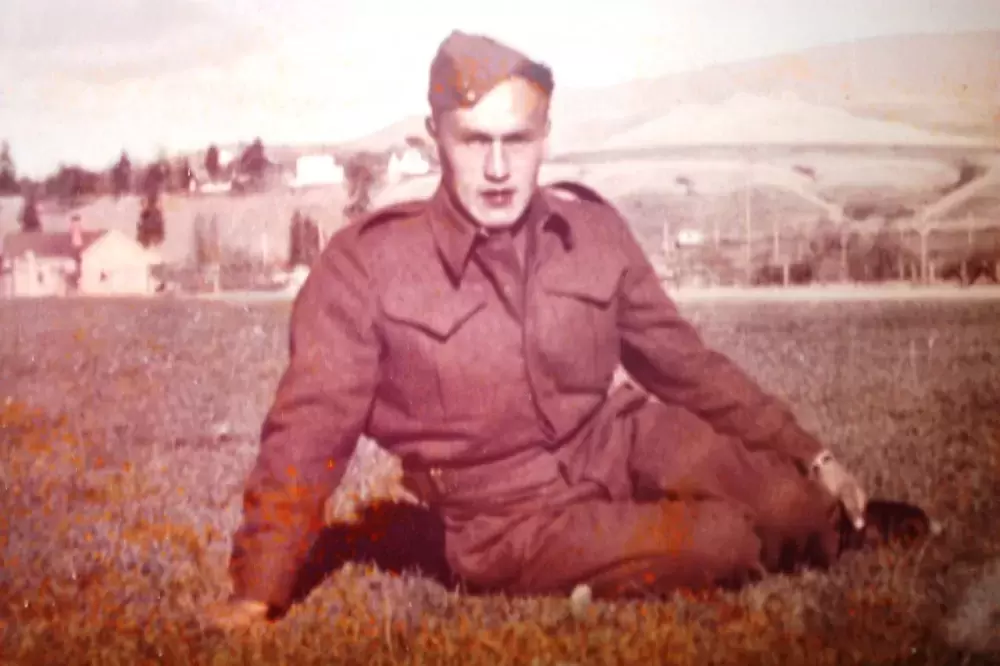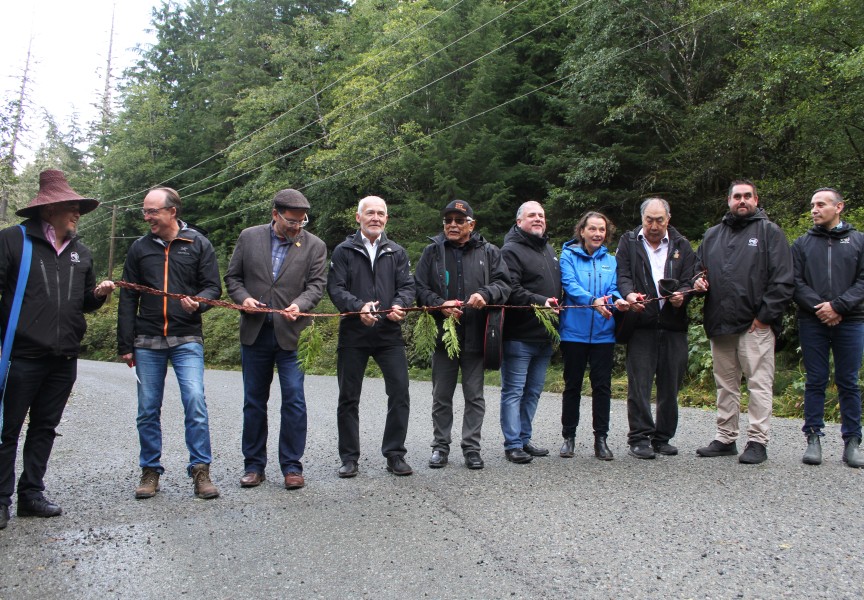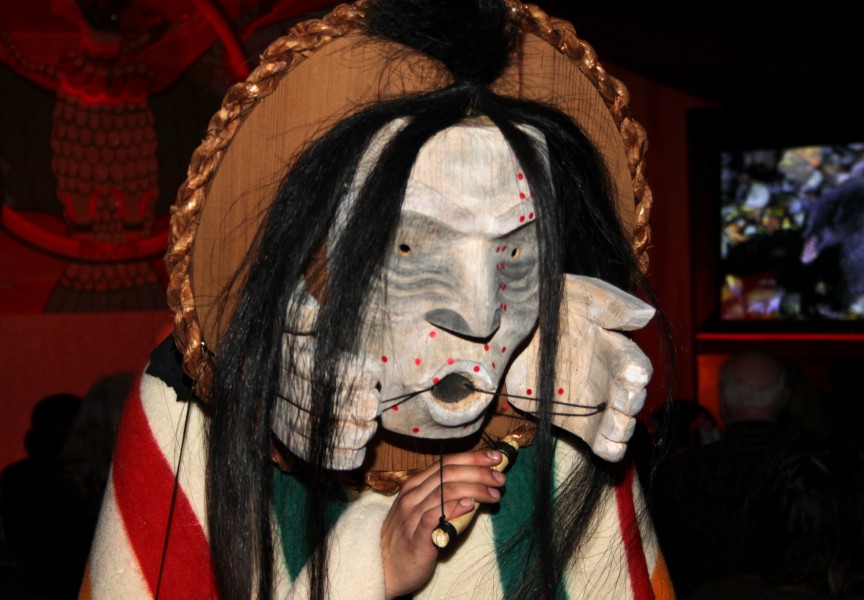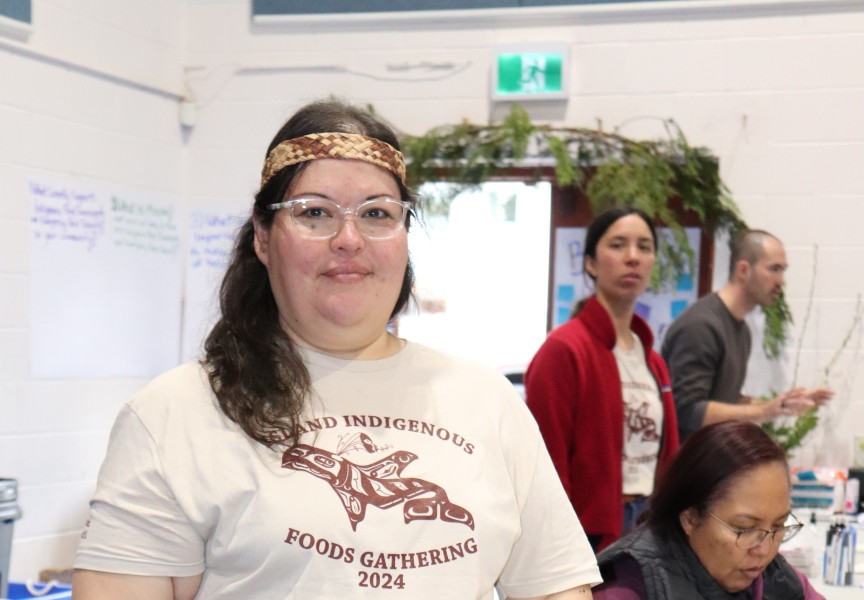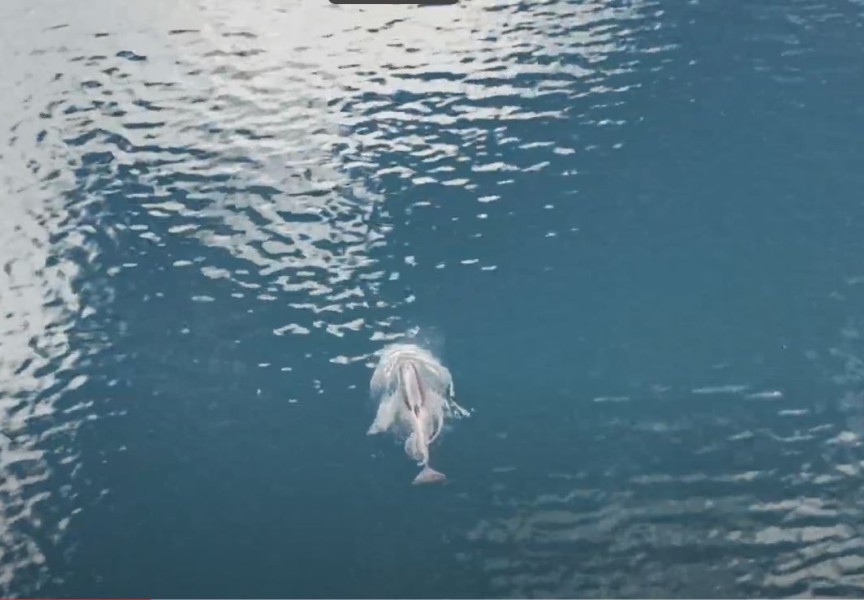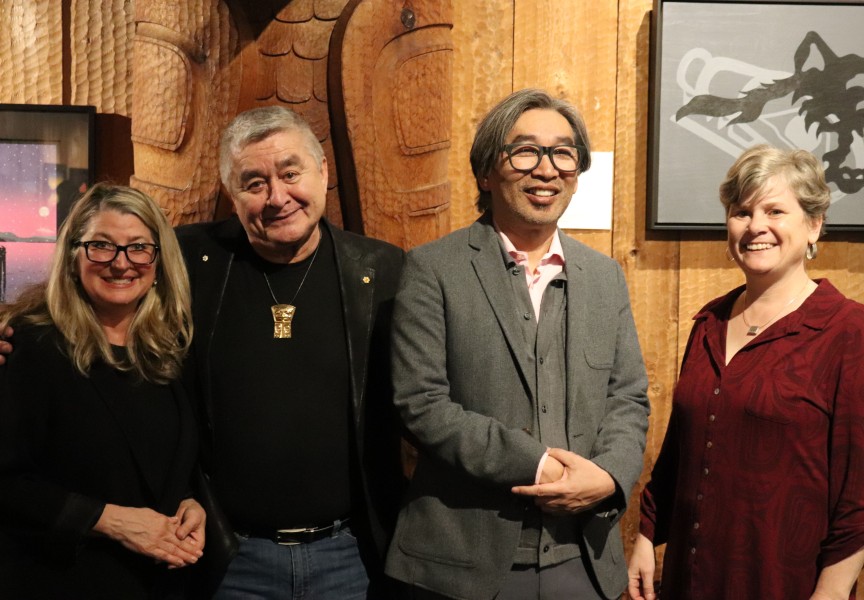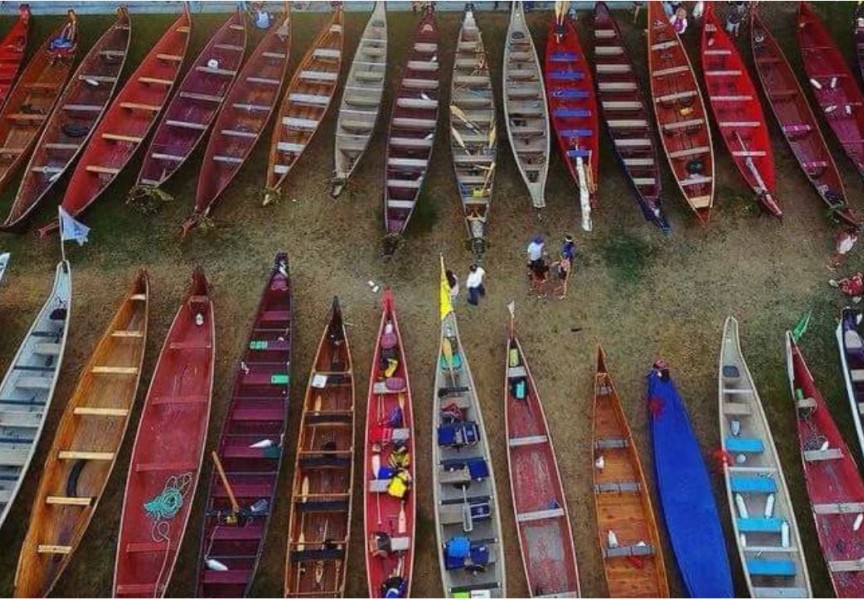There is a postage stamp of green that lies amid the myriad of farm crops near a small French town off of the coast of Normandy. It is Bretteville-sur-Laize, a well-kept cemetery decorated with a large Canadian flag at its entrance. It contains the mortal remains of nearly 3,000 Canadian soldiers that died in the Battle of Normandy during World War II.
Among the uniform rows of white headstones is one that bears the inscription: K.4147 Private E.J. Clutesi, The Calgary Highlanders, 29th August 1944 Age 26. Beneath the cold, statistical data are the heart-melting words: God alone knows how much I miss you. Remembered by your mother.
His military records say he was a Hupacasath man (he may have been Tseshaht) when he fell with four buddies in the Battle of Normandy, but to his mother, Mabel Yukum, Edward John Clutesi was her beloved son.
Despite the fact that his grave is halfway around the world, it is lovingly tended with a pillow of tiny purple flowers and surrounded by well-manicured lawns. When it comes to paying respects to fallen soldiers, there is no discrimination in a war veteran’s cemetery.
Edward Clutesi died near the end of the Second World War in the Battle of Normandy. It was the battle that brought about the eventual surrender of Nazi Germany just months after Clutesi died.
There were other Nuu-chah-nulth men that crossed the ocean to fight in World War II.
Tim Paul Sr., a gunner, was sent to Normandy, where one of the largest amphibious military strikes in history took place. More than 156,000 British, American and Canadian troops landed on a 50 mile stretch of heavily fortified coastline.
The Battle of Normandy, which lasted from June 1944 to August 1944, resulted in the Allied liberation of Western Europe from Nazi Germany’s control. With the Allied forces driving the Germans out of France and the Russian forces coming from the east, Nazi Germany was hemmed in with nowhere to go.
On May 8, 1945, the Allies formally accepted the unconditional surrender of Nazi Germany.
Tim Paul Sr. landed on the beaches of Normandy and needed to scramble up the sandy hills under enemy fire. Tim and his partner veered off to the side where they found a trail, two others from their company came up behind them, passed them and went up ahead. “The two that went ahead were blown to smithereens, and they (Tim and his buddy) saw that,” said Tim Paul, of his father.
When Paul arrived home from the war he had to board the Princess Maquinna back home to Ceepeecee. “It was a real nice place back then and everyone came from all around to welcome him home,” recalled Tim Jr. There were once family photographs of the home-coming and they danced the kwii-kwathla (sparrow dance); they were really celebrating,” Tim fondly remembered.
Even though Tim Sr. didn’t talk much about his experiences in the war, the family knew there were lasting effects. According to Tim Jr., a family member invited his father to a war movie and the very thought of it caused his father to tremble.
“Every Remembrance Day he would wear his medals and watch the Remembrance Day events, he would be quiet, solemn,” recalled the younger Tim, whose brother Floyd, he later learned was named after his father’s war buddy.
David Williams said his father’s full name was Frank Davis Williams Sr. “He was from Checklesaht but Ahousaht became his home,” said David.
Indeed, Frank Sr. was an Ahousaht member at the time of his passing and his name is included on the memorial cairn at Ahousaht, with their other war veterans.
It has been said that Frank Williams was injured during his time in the war. Two family members of other Nuu-chah-nulth war veterans recalled the story for Ha-Shilth-Sa. “Frank was hit in the legs almost right away,” said Tim Paul, sharing a story from his late father. Cody Gus also remembered the story. He said Frank was related to his wife and she said he had the bullets in his legs for decades.
“I was so proud of him. You see, this is where I got the courage to stop drinking and drugging,” said David, of his father Frank Williams. David now volunteers his time for Victoria-area service organizations that deliver support services to the needy.
Tseshaht elder Cody Gus says he remembers a lot of the Nuu-chah-nulth war veterans. Three of his older brothers served in WWII.
Cody recalls being a young boy in Alberni Indian Residential School and seeing the veterans dressed in their uniforms on special occasions. He and the other AIRS students were transferred to Ahousaht Indian Residential School in 1938 after his own school burnt down for the second time. It was in Ahousaht that he got to know the war veterans from there.
Gus said that his brother Fred and Oscar Gray of Pacheedaht were in the same station with the U.S. forces and were deployed to Japan. “They were on their way over, then the bomb dropped and so they turned around and came back,” said Gus.
In Aug. 1945 the United States dropped two atomic bombs on the Japanese cities of Hiroshima and Nagasaki, effectively bringing to an end, World War II.
“The explosion wiped out 90 percent of the city and immediately killed 80,000 people; tens of thousands more would later die of radiation exposure," states History.com. "Three days later, a second B-29 dropped another A-bomb on Nagasaki, killing an estimated 40,000 people. Japan’s Emperor Hirohito announced his country’s unconditional surrender in World War II in a radio address on August 15, citing the devastating power of “a new and most cruel bomb.”
When asked why his brothers joined the military Gus said it was because they were drafted. Conscription, or drafting, is the compulsory enlistment of people in a national service. At that time, when one was called upon by the government to enlist in military services, they had no choice but to go.
And there was another way aboriginal men were compelled to enlist. According to Gus, it was unlawful for Native Americans to drink alcohol or be intoxicated in public during the WWII era. Young aboriginal men caught drinking would be forced into military service or go to prison.
Given the chaotic nature of war, there is no way of knowing the precise number of casualties in a battle. What is known is that more than 425,000 Allied and German troops were killed, wounded or went missing during the Battle of Normandy. That is nearly half a million people in one battle alone.
Paul said that his father looked at it as his duty to defend what we have. “We may not have had it as good (as other Canadians) but we could have all ended up being German,” said Paul.
Tim Paul recalls how his father quietly contemplated his time in Normandy; “He never liked the idea of killing and used to say, I hope I just got them in the legs and I hope they will be okay.”
“It wasn’t their fault, they had no choice,” said Cody Gus.

